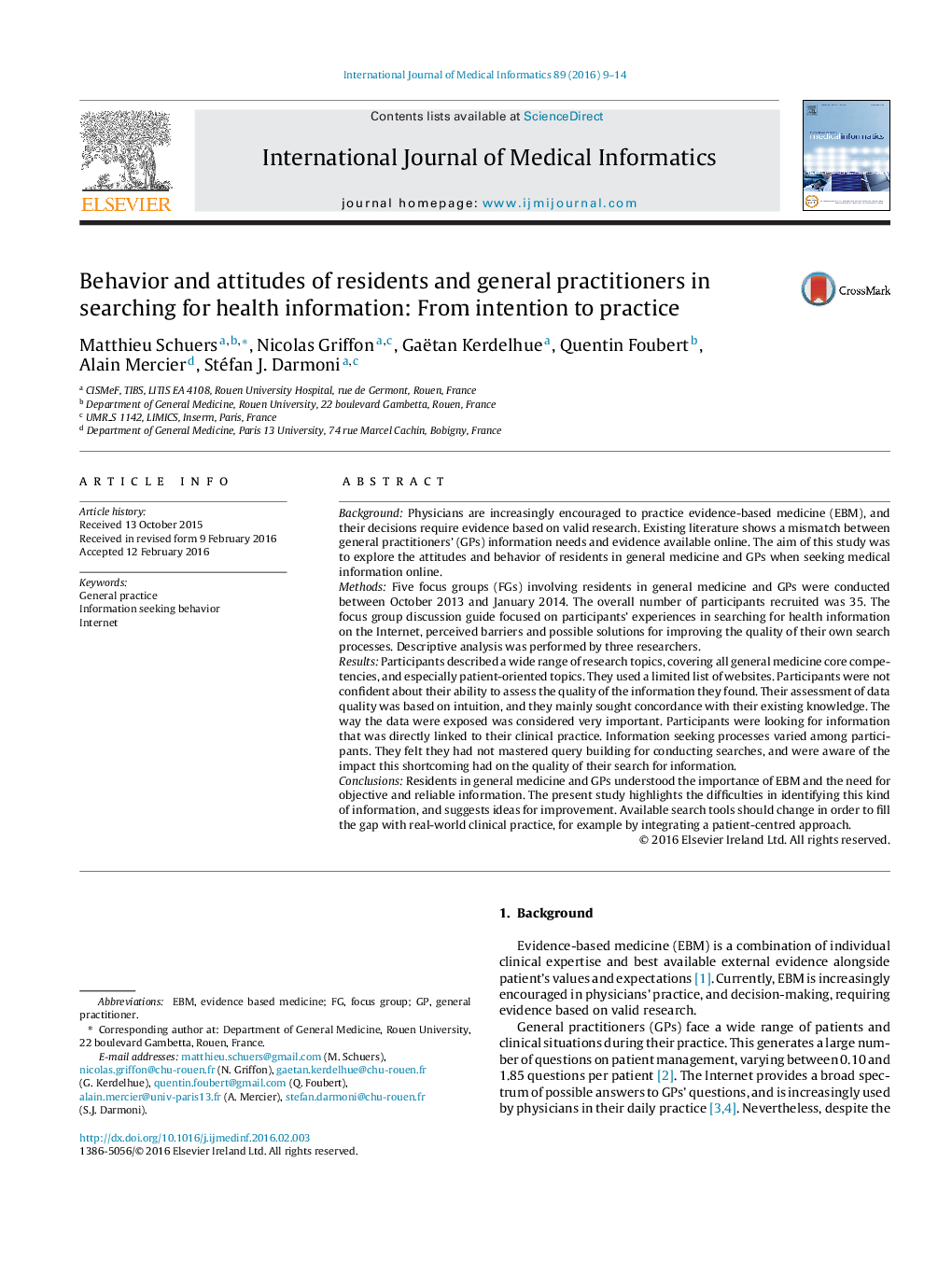| Article ID | Journal | Published Year | Pages | File Type |
|---|---|---|---|---|
| 516422 | International Journal of Medical Informatics | 2016 | 6 Pages |
•GPs and residents are aware of their lack of seeking information skills.•A large part of their searches is patient-centered and not disease- centered.•Most available online tools fail to integrate a patient-centered approach.
BackgroundPhysicians are increasingly encouraged to practice evidence-based medicine (EBM), and their decisions require evidence based on valid research. Existing literature shows a mismatch between general practitioners’ (GPs) information needs and evidence available online. The aim of this study was to explore the attitudes and behavior of residents in general medicine and GPs when seeking medical information online.MethodsFive focus groups (FGs) involving residents in general medicine and GPs were conducted between October 2013 and January 2014. The overall number of participants recruited was 35. The focus group discussion guide focused on participants’ experiences in searching for health information on the Internet, perceived barriers and possible solutions for improving the quality of their own search processes. Descriptive analysis was performed by three researchers.ResultsParticipants described a wide range of research topics, covering all general medicine core competencies, and especially patient-oriented topics. They used a limited list of websites. Participants were not confident about their ability to assess the quality of the information they found. Their assessment of data quality was based on intuition, and they mainly sought concordance with their existing knowledge. The way the data were exposed was considered very important. Participants were looking for information that was directly linked to their clinical practice. Information seeking processes varied among participants. They felt they had not mastered query building for conducting searches, and were aware of the impact this shortcoming had on the quality of their search for information.ConclusionsResidents in general medicine and GPs understood the importance of EBM and the need for objective and reliable information. The present study highlights the difficulties in identifying this kind of information, and suggests ideas for improvement. Available search tools should change in order to fill the gap with real-world clinical practice, for example by integrating a patient-centred approach.
